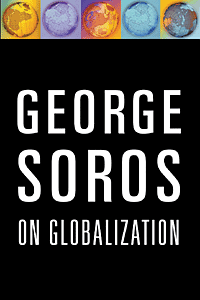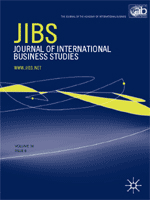|
I.
COURSE OBJECTIVE
The objective of this course is to equip MBA students with a comprehensive framework to formulate
strategies in the global marketplace. The course studies the issues involved in conducting business in the
globalization arena including organizational behavior, strategic alliance,
marketing and R&D, human resource management, business ethics, social
responsibility, law, and information technology. The nature of global
business environmental, including the impact of political economy, cultural
differences, global trade and investment, and global monetary system are
examined for their influence upon business performance and managerial activity.
It provides students with key concepts and skills to identify global
opportunities/threats, analyze their impact, formulate appropriate strategies
and implement applicable action plans to achieve company goals. Case studies are used throughout to illustrate the basic
principles of global business management and strategy.
Global Business Management course has no prerequisites, but draws
on fundamental concepts in the prerequisite courses relates to
microeconomics, finance, marketing and other GMBA core courses.
II. REQUIRED TEXTS AND READINGS
i. Global
Business Today, 10TH EDITION (2018), By Charles W. L. Hill and G. Tomas
M. Hult (8/e),
McGraw Hill Education.
ii.
International Business Online Learning Center, Chapter
slides and Business Plan

III. COURSE FORMAT
The course is taught using a combination of lectures, case
analysis, book chapter reading, class discussion, and global market visiting (Indonesia in 2018). The
textbook will give you a broad picture of what international/global business
is all about. To enhance your grasp of various business management
problems global marketers face, in-class case
analyses and Harvard Business School cases
are scheduled. All in-class case analyses, case presentation, and books
reading will be conducted by student groups. Six teams will be
formed. Each team will be made up of a number of students, and will
work as a unit throughout the semester.
IV. EVALUATION
1. Case Discussions
Experience
is the best teacher -- and this MBA course provides the most divergent and
colorful global knowledge into every hour of learning among our global
students (GMBA
around the world). In case analysis, students are introduced to the
reality of decision making -- including incomplete information, time
constraints, and conflicting goals -- giving you first-hand experience in
analyzing global business situations. The exercises seek to provide not only
a more in-depth understanding of specific globalization issues, but also to
improve your interpersonal, leadership, and presentation skills. Your
participation in these exercises is vital to your individual success and the
success of the class. Thus, absences will work to your detriment in class in
the same way they do in the workplace. You will miss important information
and let down your work team.
Please ensure that your case presentation and discussion (1) is a
team effort and (2) is of professional quality. The first condition requires
that (a) all questions be answered and (b) all members understand and
contribute to the answer to each of the questions (so that any member is
comfortable with answering or explaining any part of any question). The
second condition requires (1) early and thorough proofreading for grammar,
spelling, style, relevant content, supportable logic, and citation of sources,
(2) appropriate dress and mannerisms to be used during the oral presentation,
(3) knowing your material so well that you DO NOT READ YOUR PRESENTATION, and
(4) e-mailing me your case homework summary (MS Word file) and case
presentation (PowerPoint slides) before Sunday noontime prior to our
scheduled case discussion date. Each case summary is to be no more than 5
pages, double-spaced, 12 point font, with one inch margins. Depending on the
complexity of the case, each case presentation is expected to finish within
30 minutes.
2. Mid-term Exam
Exam
questions cover the fundamental concepts of global business including
business ethics, international trade theory, global monetary system, and
global business strategy. Exam questions will be selected from Online
Chapter Quiz, assigned
chapter readings, and lecturing handouts. Time constraints dictate that
no make-up exam will be given for any reason. If you need to miss an
examination or class owing to a religious holiday or religious observance,
please let the instructor know before the end of the drop/add period.
3. Academic Integrity
The
University's Code of Academic Integrity is designed to ensure that the
principles of academic honesty and integrity are upheld. All students
are expected to adhere to this Code. Violations include: plagiarism*
and exam misconduct. The NCTU Management School does not tolerate academic
dishonesty. On each assignment you will be asked to write out and sign
by all your team members the following pledge. "I pledge on my
honor that I have not given or received any unauthorized assistance on this
exam/assignment."
*Note: Make sure not to plagiarize anyone else’s work
either intentionally or unintentionally. Plagiarism is defined as using
someone else's words or ideas without proper attribution. The
proliferation of Web pages and electronic publications makes it easy for
plagiarism, accidental or otherwise, to occur. When in doubt, make sure
to include a full citation either as a footnote or as a reference at the end
of the paper.
V. CLASS SCHEDULE
(Thur. 18:30 – 21:20 pm, RM. A506; Office Hours)
|
|
Global Business
|
Case Study
|
Country Report/Visit
|
|
09/13
|
Class setup/mechanism
|
|
Team Assignment
Taiwan
|
|
|
|
|
|
09/20
|
1: Globalization
|
Who Makes the Apple IPhone
|
|
|
09/27
|
2: National Differences in Political Economy
3: National Differences in
Economic Development
|
Ghana: An African Dynamo
Revolution in Egypt
|
1. Geography, History ,Wars
|
|
10/04
|
4. Differences in culture
5: Ethics, Corporate Social Responsibility,
and Sustainability
|
World Expo 2020 in Dubai, UAE
Bitcoin as an Ethical Dilemma
|
2. Political economy, Socialism,
Capitalism,
national governance, Corruptions, Politics
|
|
|
|
|
|
|
10/11
|
6: International Trade Theory
|
The Rise of India’s Drug Industry
|
3. Sociocultural evolution, religion culture, conflict
& Wars
|
|
10/18
|
7: Government Policy and International Trade
|
China Limits Exports of Rare Earth
Materials
Foreign Retailers in India
|
4. Economic Liberalization, economy, cultural evolution,
Human
Rights (China),
|
|
10/25
|
8: Foreign Direct Investment
|
I Want my Greek TV!
|
5. Regional trade boarder trade, ASEAN, TPP vs.CEPEA
,
ADB, silk road, OBOR
|
|
11/01
|
9:
Regional Economic Integration
|
The
Rise and Fall of the Japanese Yen
Currency
Trouble in Malawi
|
6.
National growth/Globalization paradox,, WTO, IMF, MNC,
Currency
War
|
|
|
|
|
|
|
11/08
|
10:
The Foreign Exchange Market
|
|
|
|
|
|
|
|
|
11/15
|
11:
The International Monetary System
|
|
|
|
11/22
|
Mid-term
Exam
|
|
|
|
11/29
|
15:
Global Production and Supply Chain Management
|
Levendary Cafe
(exercise)
|
|
|

US Trade Commission





















|
![]()



















